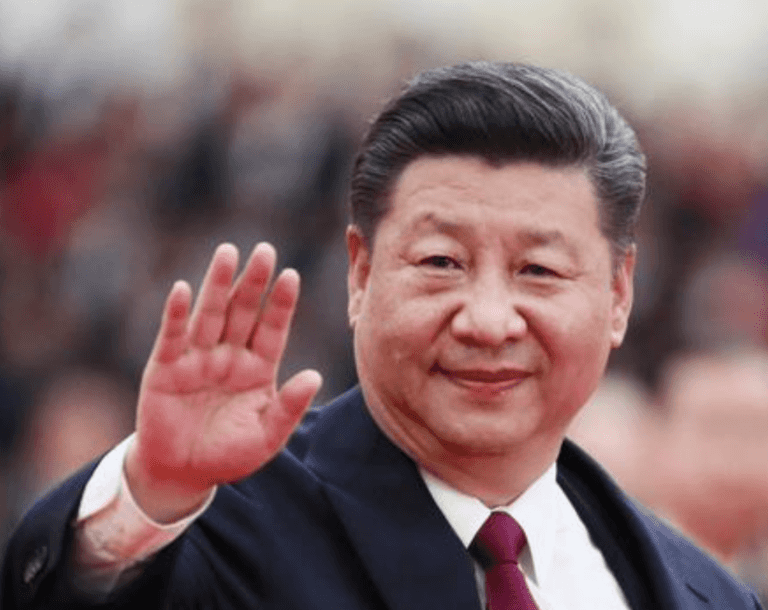
This article was originally published by Radio Free Asia and is reprinted with permission.
U.S. President-elect Donald Trump has invited Chinese President Xi Jinping to attend his Jan. 20 inauguration in Washington, his incoming White House press secretary said Thursday.
Karoline Leavitt told the hosts of Fox and Friends that inauguration officials are making plans for other foreign dignitaries to attend too.
Her comments confirmed an earlier report by CBS News, which quoted sources as saying that Trump invited Xi in early November, shortly after the election, adding that it was unclear what’s Xi’s response was.
Xi has said he’s ready to work with the Trump administration, but has also warned that both countries stand to “lose from confrontation,” as Trump announced plans to impose tariffs of at least 60% on Chinese imports.
If confirmed, the invitation to Xi would be unprecedented, as foreign leaders haven’t attended U.S. presidential inauguration ceremonies since 1874, but could offer China the chance to negotiate with the new president, who recently nominated several China hawks to top foreign policy positions, analysts told RFA Mandarin.
According to CBS, Hungary’s far-right leader Prime Minister Viktor Orbán, described by the station as having “a warm relationship with Trump,” has yet to respond to his invitation.
“World leaders are lining up to meet with President Trump because they know he will soon return to power and restore peace through American strength around the globe,” the station quoted Leavitt as saying.
The report comes after Trump nominated outspoken China critic Marco Rubio for his Secretary of State, Rep. Mike Waltz of Florida for national security adviser, and Rep. Elise Stefanik of New York as ambassador to the United Nations.
Trump then announced on Dec. 9 he had picked three China trade hawks for top roles at the State Department, including Michael Anton, who has previously argued it is not in U.S. interests to defend Taiwan from an invasion by China.
‘Preferring one-to-one summits’
But Li Da-Jong, director of the Institute of International Affairs and Strategy at Taiwan’s Tamkang University, told RFA Mandarin, the invitation to Xi, if confirmed, wasn’t an indicator of a more pro-China foreign policy than had previously been expected.
“If Trump made a formal invitation to Xi Jinping from the outset … it’s not a sign of weakness, of compromise, or a concession to China,” Li said. “It’s in line with his past style of preferring one-to-one summits … leader-to-leader, to create the political energy to break through the status quo.”
Ming-shih Shen of Taiwan’s Institute for National Defense and Security Research said Trump considers Xi a personal friend, and the reported invitation would seem natural from that perspective.
He said Xi is very unlikely to accept any invitation, however.
“Given the current situation in China, and the People’s Liberation Army’s large-scale exercises in the Taiwan Strait and Western Pacific right now, I don’t think Xi would go anyway,” Shen said.
“The main question would be who does represent China, which could be the vice president or another member of the Politburo Standing Committee,” he said, adding that he believes Trump’s stated policy of imposing 60% tariffs on Chinese imports across the board is an opening gambit for negotiations, rather than a final policy.
“China will act tough and declare that it won’t comply, but it will devalue the yuan to protect trade,” Shen said. “China often appears to draw a line in the sand, but then makes concessions.”
Taiwan issue
Yi-feng Tao, associate professor of politics at National Taiwan University said China could also stop short of bringing Taiwan into any negotiations with Trump.
“Peace and stability in the Taiwan Strait is a high consensus issues across the United States, and also across all of the U.S.’ allies and Asia-Pacific countries,” Tao told RFA Mandarin in a recent interview. “So Beijing may not directly touch on that issue in a moderate interaction with Trump.”
He said China will more likely continue to reiterate its core interests, particularly the “thorny issue” of tariffs and high-tech bans.
Reuters reported on Thursday that two senior members of Taiwan’s government are in the United States to meet people connected to Trump’s transition team, in a bid to establish ties with the incoming administration.
Lin Fei-fan and Hsu Szu-chien, both deputy secretaries-general of Taiwan’s National Security Council and several of their staff are in Washington for meetings through this week, the agency cited multiple sources as saying.
Their visit came as China deployed an “unprecedented number” of naval vessels in the Taiwan Strait and announced extensive reserved airspace zones in a display of its capability to project power into the Pacific, a senior Taiwanese defense official said on Wednesday.
The show of force, which has yet to include any military exercises, comes days after Taiwan’s president, Lai Ching-te, visited the U.S. state of Hawaii and the U.S. territory of Guam during a tour to reinforce ties with the island’s Pacific allies.
One-China principle
Chinese Foreign Ministry spokesperson Mao Ning called on the United States not to do anything to undermine Beijing’s territorial claim on Taiwan, which it terms the “one-China principle.”
“China’s position on the Taiwan issue is consistent and clear,” Mao told a regular news briefing in Beijing on Thursday. “We urge the U.S. to abide by the one-China principle … handle the Taiwan issue prudently, and not send any wrong signals to ‘Taiwan independence’ separatist forces.”
Taiwan has never been ruled by Beijing, nor formed part of the People’s Republic of China, and is formally governed by the Republic of China government formed after the 1911 fall of the Qing Dynasty under Sun Yat-sen, that later fled to Taipei after losing the civil war to Mao Zedong’s communists on the mainland.
While China insists on eventual “unification” with Taiwan, by armed invasion, if necessary, the majority of Taiwan’s 23 million people have no wish to give up their democratic way of life to submit to Chinese rule.
0 comments :
Post a Comment